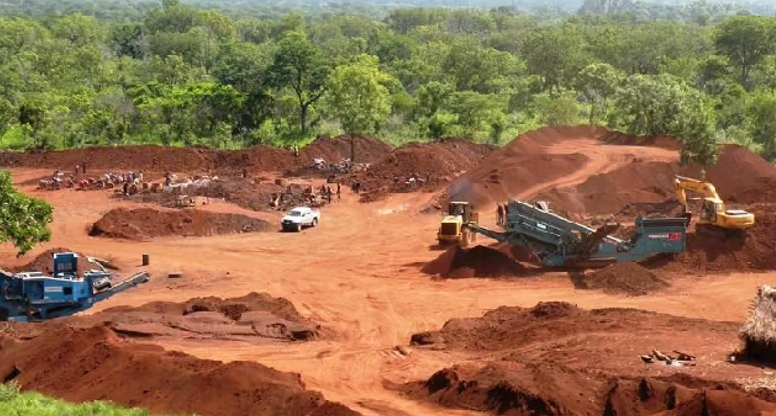您想继续阅读英文文章还
是切换到中文?
是切换到中文?

THINK ALUMINIUM THINK AL CIRCLE

The Ghana Bauxite Company Limited (GBC), based in Awaso in the Western North Region, is gearing up to transform the local industry with plans to build a state-of-the-art alumina refinery. This bold move promises to supercharge domestic processing capabilities and break Ghana's reliance on foreign refineries, marking a powerful step toward unlocking the full potential of the country's rich bauxite reserves.

A commendable move by GBC
The government has praised the leadership of Ghana Bauxite Company (GBC) at Awaso for taking a bold step towards building an alumina refinery, an initiative to transform the country's bauxite industry.
"The refinery will significantly improve our operations and contribute meaningfully to Ghana's economy. It will allow us to process bauxite locally, create jobs, and retain more revenue within the country. This is a fantastic development. Not only will it expand employment opportunities in Awaso and surrounding areas, but it also aligns with the government's broader vision of an integrated aluminium industry," said Alexander Gyadu, General Manager of the Ghana Bauxite Company.
Western North Regional Minister Wilbert Petty Brentum hailed the move as a game-changer, highlighting its potential to boost the economy by adding value to Ghana's rich natural resources. He emphasised that beyond improving the company's operational efficiency, the refinery would open up much-needed job opportunities for the people of Awaso and neighbouring communities, marking a new chapter of growth and prosperity for the region.
Also Read: GIADEC sets policy framework for Ghana's downstream aluminium industry
He highlighted that harnessing Ghana's own bauxite reserves would significantly cut reliance on imported alumina while also empowering local industries and reinforcing the nation's self-sufficiency. Speaking at the launch of the company's Community Relations Office in Awaso, located in the Bibiani-Anhwiaso-Bekwai Municipality, Mr Brentum reaffirmed the government's strong commitment to adding value to Ghana's natural resources. He commended the management of GBC for their significant investments to boost operational efficiency and drive long-term growth.
"The government's support for this initiative aligns with its broader vision of developing an integrated aluminium industry in Ghana. Since Ofori-Poku Company Limited took over from foreign operators three years ago, the company has demonstrated remarkable growth and efficiency," added Mr Brentum.
Green energy as an economic strategy?
In a LinkedIn post, Alexander Agyenim-Boateng, a Scientific Research & Development Officer at the Ghana Atomic Energy Commission, emphasised the critical role of nuclear energy in supporting such industrial advancements. He argued that sustainable industrial growth, like the operations of the new bauxite refinery, requires a stable, high-capacity, and clean energy source attributes inherent to nuclear power.
Agyenim-Boateng also pointed out that nuclear energy can provide the necessary baseload power to drive large-scale industries, ensuring energy security and facilitating green industrialisation. "However, this vision will only be sustainable if it is underpinned by stable, high-capacity, and clean energy, a gap that nuclear power is uniquely positioned to fill. Ghana's over-reliance on fossil fuels and hydropower for industrial power needs is increasingly becoming unsustainable. Volatility in crude oil prices, climate-induced hydro generation variability, and thermal plants' inconsistent performance highlight the need for a robust baseload solution. Nuclear energy offers a safe, reliable, and clean alternative, capable of powering large-scale industries like refineries and mineral processing plants without the carbon footprint of traditional sources," added Agyenim-Boateng.
As the global economy shifts toward greener production standards, nations that continue exporting raw materials without low-carbon value addition face the risk of carbon tariffs. In this context, nuclear energy is more than just a power source it's a strategic economic lever. By enabling Ghana to produce "green" refined products, from aluminium to gold, nuclear energy can open doors to premium international markets and position the country as a forward-looking, responsible player in global trade.
"It is time for Ghana to walk boldly into a new era of sustainable industrialisation powered by nuclear energy. The vision is clear, the opportunities are vast, and the future is calling," underscored Alexander Agyenim-Boateng.
Source: The part of Alexander Agyenim-Boateng has been taken from this Linkedln page.
Responses








